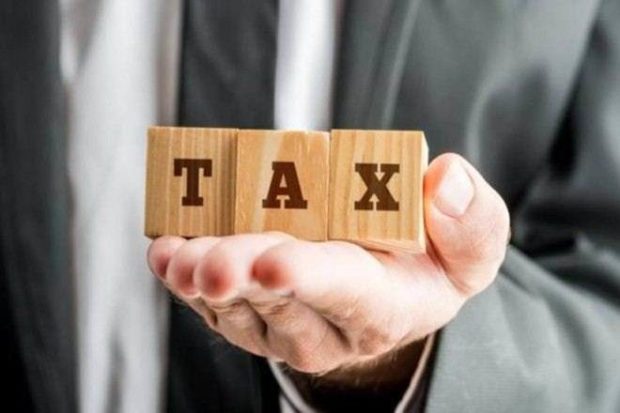Unless your income lies in the tax-free threshold (which is below $18,200) you are required to lodge your tax returns annually. There are instances where you may be required to lodge your tax returns even if you earn below this threshold. That is why it is always important to talk to an accountant Melbourne professional who can advise you accordingly on your tax lodgment.
The deadline for the lodgment of tax returns for individuals and trusts in Australia is 31st October. In the instance where this due date falls on a weekend or a holiday, you are required to lodge your tax returns on the next business day. These tax returns will cover the financial year running from 1 July to 30 June.
If you will not be lodging on your own, you can also use a registered tax agent. Apart from the convenience factor, tax agents are generally preferred because they can lodge taxes after the due date of 31 October. However, you should contact them early before this due date.
In spite of the flexible dates and information about the lodgment of tax returns, there are people who fail to lodge their taxes at all. This is usually due to a number of reasons including the complexity of the process, negligence, working abroad or maybe someone may just be too busy that they forget to lodge their tax returns in time. The penalties imposed by the Australian Taxation Office (ATO) for failing to lodge your returns are usually hefty. If you find yourself in this predicament, here are some of the key information about non-compliance that you need to keep in mind:-
When You Don’t Have to Lodge Your Tax Returns
There are unique circumstances where you don’t really have to lodge your tax returns. This is the case if your income is less than $18, 200. However, even if your income falls in this bracket, it is still advisable to send a Non-Lodgment Advice (NLA) to the Australian Taxation Office informing them that you don’t have to lodge your returns because your income lies within the tax-free threshold. The NLA will also ward off the ATO from initiating a compliance action against you. A professional Melbourne accountant can help draft a Non-Lodgment Advice for your use if you fall under this category.
What if you are unable to pay overdue taxes?
Sometimes, non-lodgment may simply be because you cannot afford to pay your overdue taxes. That can be the case with independent contractors or the self-employed. Even in cases where you don’t have any money in the bank to foot your tax bills, it is still prudent to lodge your tax returns so as to get them up to date. You can also negotiate with the Australian Taxation Office on the mode of payment for overdue taxes as long as you have provided a timely and accurate lodgment of your returns. Work with a tax lawyer to get some relief or reduction on tax debts. You can also negotiate directly with the ATO and work out a reasonable payment plan for your overdue tax debts that will allow you to foot the debt over time. Your primary responsibility is to file the returns before the deadline.
What Penalties Apply if you Fail to Lodge Your Tax Returns?
If you fail to lodge your tax returns by the due date, the Australian Taxation Office will impose the Failure to Lodge (FTL) penalty on you. In some cases, the tax office may warn you in writing or on phone when you fail to lodge your tax returns on time. Sometimes, they simply choose to apply the FTL penalty without advance warning. This will be preceded by a penalty notice that will state the amount of taxes that are due as well as the due date of the FTL penalty.
If you miss out on this deadline, the FTL penalty will be applied based on the rate of a single penalty unit for every 28 days or part thereof that the notice document will be overdue. This is applied for a maximum of 5 penalty units. So if you stubbornly refuse to lodge your taxes even after repeated warnings, there is a cap on the amount of FTL penalty that you can pay. One penalty unit is $180 so the maximum penalty that you can pay as an individual for failing to lodge your taxes is $900.
This FTL penalty also applies to small businesses. If your business has an assessable income of between $1 million and $20 million (classified as “medium-sized”), the FTL penalty will be doubled. If the assessable income of your business is more than $20 million (classified as a “large” business), the FTL fine is multiplied by 5.
A business facing penalties for failing to lodge their tax returns can also apply for a failure to lodge penalty remission. In such cases, the ATO may offer remissions where there were reasonable grounds for failing to lodge tax returns on time such as a natural calamity or sickness.
Can Failing to Lodge Tax Returns Land Someone in Jail?
Failing to lodge your tax returns if you are an Australian resident for tax purposes can result in a criminal conviction under section 8C of Australia’s Taxation Administration Act 1953. This is usually a very serious charge that may be brought on you for serious tax fraud offences.
But as a taxpayer, you can still avoid a criminal conviction and instead pay a bond under certain circumstances. This usually requires meeting the payment obligations for the money owed.
In the event that you have been served with court summons for failing to lodge your tax returns on the due date, it is advisable to honour these summons. Hire a professional tax lawyer that can help you put up a good defense and avoid a criminal conviction. Court summons should also be taken seriously as tax offenses carry very stiff penalties.
For the first offense of failing to lodge your tax returns, you can pay a maximum penalty of $3400. If you have been previously convicted for the same offense, the maximum penalty is set at $4400. However, if you have been previously convicted for at least two violations, you can face a maximum penalty of 12 months imprisonment and/or a fine of $5500.
What to do if you haven’t lodged your tax returns
Given the scale and sophistication of ATO data gathering machine and the wide availability of third party data, it is fairly difficult to dodge taxes in Australia if you are earning an income. That is why you must take pre-emptive measures and ensure your tax returns are up to date. Sooner or later, they are going to catch up with you and the consequences can be tough.
If you have some outstanding tax returns, start taking measures to ensure they are up to date. You can also hire a professional accountant or a tax lawyer to make the case with the ATO for a remission on your behalf in order to reduce your tax burden. In case you have not lodged your taxes because you are missing some crucial income information, a professional tax accountant or tax agent can fill in these gaps using pre-filled data that is sent to the Australian Taxation Office by third parties. Even in cases where records might be scanty, a professional tax agent can work through your financial information to calculate what you can reasonably claim.
The most important thing to do if you have not lodged your tax returns is to begin taking proactive steps with the help of an accountant or a tax agent. It shows good faith on your part.





